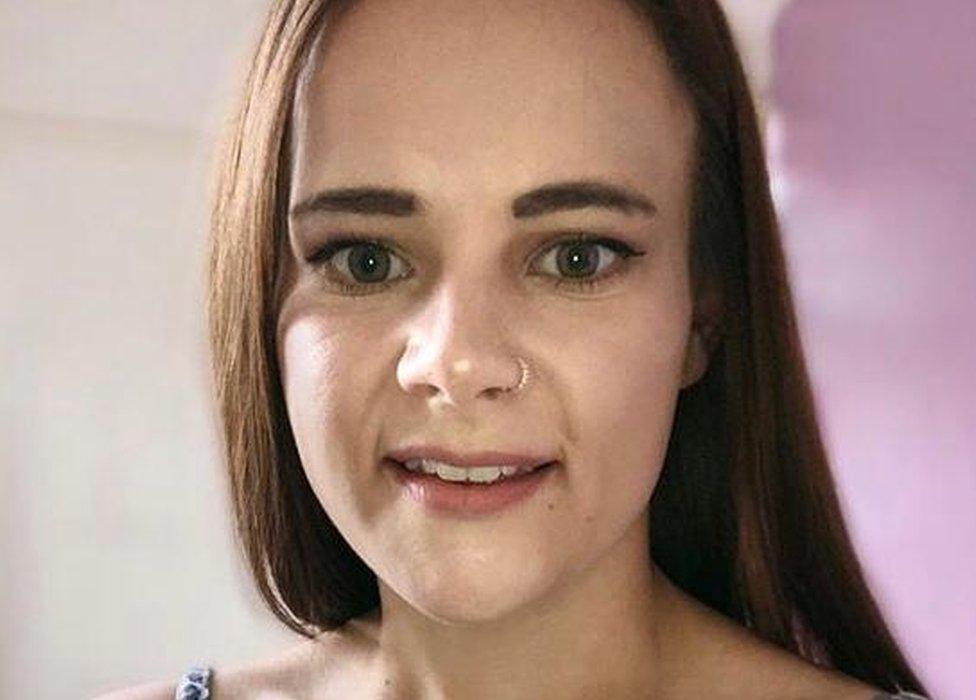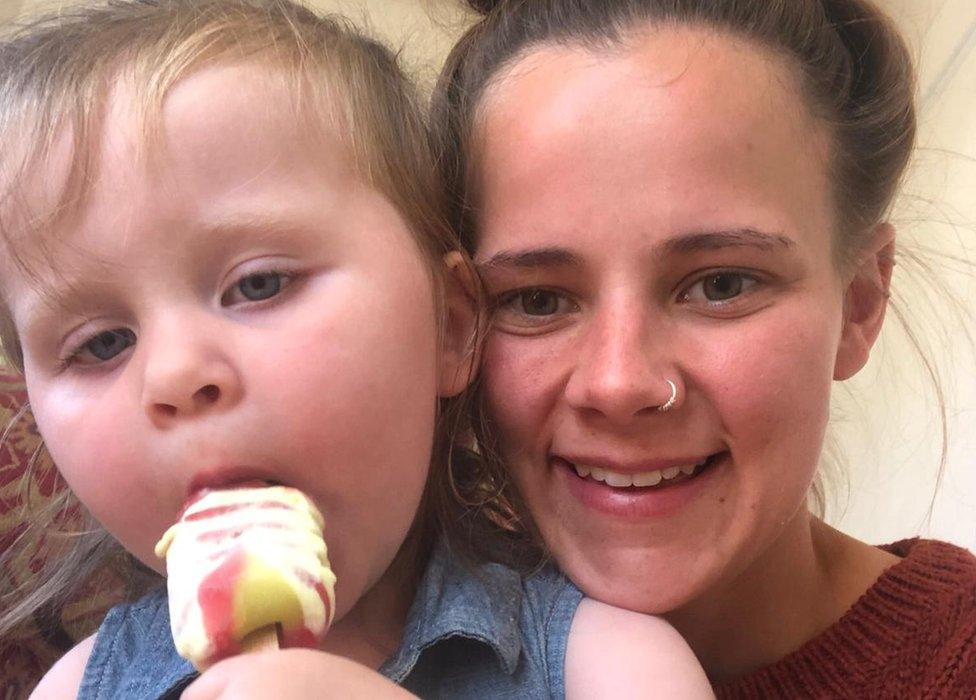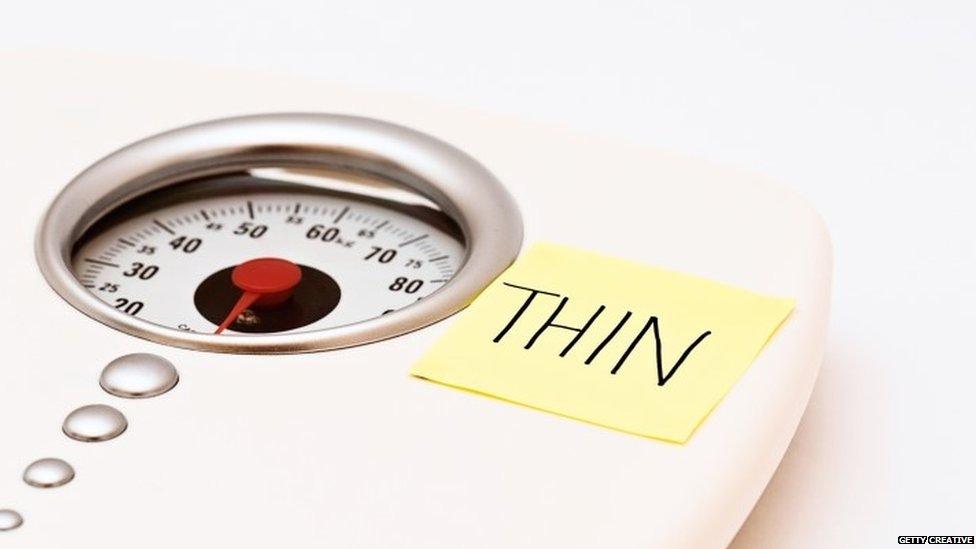Anorexic woman 'not thin enough' for treatment 'felt like a fraud'
- Published

Chelsea Salt has been battling the eating disorder for seven years
A woman recovering from anorexia said she "felt like a fraud" when told she was "not thin enough" to access treatment and support.
Chelsea Salt, 27, who lives in York but is from Grimsby, has been battling the eating disorder for seven years.
She said she was denied help from a local NHS community clinic because her body mass index (BMI) was above the level classed as anorexia.
The relevant NHS Trust said it was committed to giving the right care.
NHS guidelines state adult patients with a BMI below 17.5 are diagnosed as being anorexic, but Ms Salt has a BMI of 20.
However, according to the National Institute for Health and Care Excellence (Nice), people with anorexia can have a BMI higher or lower than average - and BMI is just one of 14 signs that can indicate an eating disorder.

The 27-year-old has received NHS treatment for her disorder previously and said she had been "in a good place for the past two years but lockdown threw me"
Ms Salt said she struggled with her eating disorder during lockdown due to anxiety, which prompted her to access treatment and support.
"They [the clinic] said 'you won't get in because your BMI is too high'.
"It makes me feel like a fraud.
"You start questioning yourself, like maybe there's nothing wrong with me and it makes it harder to move forward."
She said using BMI to diagnose anorexia gave the wrong message to those seeking help.
Liz Herring, of the Tees, Esk and Wear Valleys NHS Foundation Trust, said: "We're sorry to hear Ms Salt's concerns about the care and treatment she has received and would encourage her to raise these with us as soon as possible."
She said the health and wellbeing of its patients was "central to all we do".

Follow BBC East Yorkshire and Lincolnshire on Facebook, external, Twitter, external, and Instagram, external. Send your story ideas to yorkslincs.news@bbc.co.uk, external.
- Published16 October 2018
